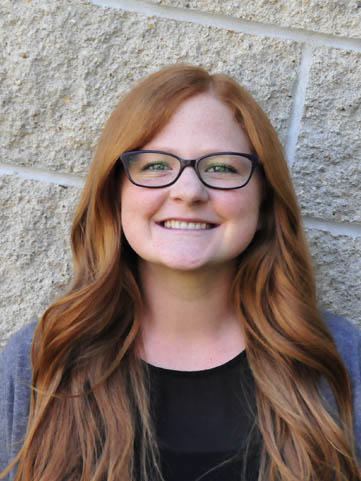March 15, 2019
Stem Cell Research
Kara Vanden Broek is a fourth year PhD student in David Hansen’s lab and when speaking with her it is instantly clear that she is both incredibly driven and has a great passion for genetics and the biological sciences. A recipient of the Alberta Children’s Hospital Research Institute (ACHRI) Award, Queen Elizabeth Scholarships, and the prestigious Alberta Innovates Graduate Student Scholarship (AITF) Award, Kara focuses on Developmental Biology and works with stem cells in a model organism. The model organism that Kara works with is called Caenorhabditis elegans, or C. elegans, which are tiny worms. Kara explains that Developmental Biology is “the study of any process that occurs as an organism grows from an embryo to a full functioning organism” and says that it is this approach to science that has led her to become “specifically interested in genetics”. In Kara’s research, C. elegans are useful as a model organism because their entire genome has been sequenced and mapped, and they have a fast reproduction rate. Kara feels that using a model organism with a fully mapped genome provides a strong base knowledge for her experiments and enables her to quickly manipulate the genome and see the specific effects of the changes she creates on the organism.

Kara Vanden Broek
Kara explains how she works with stem cells in David Hansen’s lab, focusing on C. elegans and the Germline:
“The focus of our lab is stem cell maintenance. Stem cells are a pool of specialized cells that can develop into any other type of cell. Stem cells either replicate themselves (stay the same) to maintain a stem cell pool, or differentiate (change themselves) to become a different type of cell. Since we focus on germline become sperm and/or eggs. We look at how the balance between these cells is maintained. If you have too much stem cell replication (proliferation) you have uncontrolled growth, which can result in tumors. On the other hand, if you don’t have enough proliferation you deplete your stem cell pool, which limits an organism’s ability to repair damaged tissues through their lifespan. When we make genetic changes to an organism, specifically C. elegans, we see the consequences of the changes we make by looking at the pool of stem cells compared to the pool of sperm and/or eggs. Any imbalances in these pools tells us how the changes we made are affecting the organism’s stem cell maintenance. I work on the gene rack-1 which when mutated disrupts the balance between stem cell proliferation and differentiation. A loss of rack-1 expression results in worms that are tumorous and causes mislocalization of key proteins in the Notch signaling pathway. My goal is to determine how the gene rack-1 is able to influence Notch signaling and contribute to stem cell maintenance.
Listening to Kara speak about her PhD it is evident that her goals do not stop at understanding stem cell maintenance in C. elegans, but that she wants her research to eventually help people with genetic disorders. It is this sense of purpose that fuels her work ethic and continuous drive to do well and achieve excellence in her field. She says that “the purpose of our research is to figure out what controls the natural balance of stem cells in the organism, so that this understanding can eventually be applied to other studies and other subjects”. Kara wants her research “to build the knowledge in the field of stem cells; there’s so many opportunities for them to be used for therapeutics but right now we just don’t have enough knowledge of what is going on. I want to help build the foundations of stem cell research.” Kara is meeting her goals and is currently helping to build the foundation of stem cell research for future generations. In every field there are pioneers, and with stem cells being a relatively new area of research, Kara’s work will help contribute to understanding how stem cells can be safely used in modern medicine.
After completing her PhD Kara hopes to further pursue her love of genetics by continuing her education through the Canadian College of Medical Genetics to become certified in Molecular Genetics. This will allow her to achieve her ultimate goal of being able to direct a Molecular Genetics lab, focusing on the identification of the underlying causes of genetic disorders. Kara’s drive and passion has pushed her to tackle every obstacle she has so far encountered, and after meeting Kara there is little doubt that she will meet and exceed these goals, while positively affecting everyone who has the opportunity to work and interact with her.
An article by Glynndon Dobson
